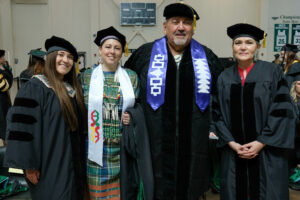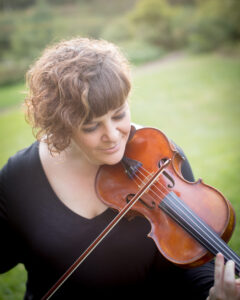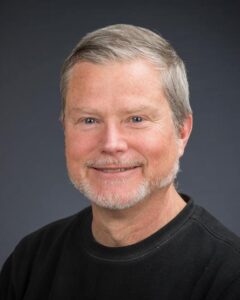MADISON, Wis.—The University of Wisconsin System Board of Regents today announced the recipients of its 31st annual Teaching Excellence Awards. They will be honored March 31 at the next Regents meeting. The awards recognize outstanding teaching and are the UW System’s highest recognition for members of its faculty and instructional academic staff. Each recipient is awarded $7,500.
“These UW educators and programs are inspiring students to develop invaluable life skills,” said Regent Cris Peterson, chair of the selection committee. “With this award, we recognize the innovative, collaborative approaches to teaching that are equipping students to reach their full potential.”
Each award recipient demonstrates an exceptional commitment to teaching and learning; uses effective teaching strategies to enhance student learning; and makes a significant impact on students’ intellectual development.
The 2023 recipients are:
-
Erin Aldridge, Professor, Music Department, UW-Superior.
Aldridge is professor of violin and director of orchestra at UW-Superior. For over 20 years, she has served as an accomplished educator and scholar in addition to leading a successful professional performing and recording career. Aldridge approaches her work deeply committed to the role of music in cultivating healthy mindsets in her students, highlighting music’s power to inspire and create a sense of community and belonging. She fosters a holistic development of each student, an approach reflected in her students’ evaluations, which describe her as approachable, caring, and devoted to their success and personal growth. Aldridge teaches applied violin lessons, university orchestra, string chamber music, among many other classes, and spends time outside the classroom to build community for UW-Superior music students, including movie nights with film score analysis. She provides undergraduate research opportunities in music, as well as the intersection of music and business, and has made more than 200 visits to area elementary, middle, and high school music programs to teach, conduct, perform, and present educational music lectures. Aldridge has brought internationally acclaimed artists to give masterclasses at UW-Superior. She has won numerous awards as both a soloist and chamber musician and has been featured throughout Europe, South America, and the United States. -
Jonathan Shailor, Professor, Communication Department, UW-Parkside.
Shailor has been a professor at UW-Parkside for 28 years, teaching 22 different courses. A leader and role model among colleagues for his commitment to community-based learning, Shailor applies teaching and learning to unconventional spaces beyond the university classroom. He has engaged his students in numerous regional organizations that serve elementary and high school students, as well as the incarcerated and homeless. His innovative approaches situate students, theories, and concepts in unscripted real-life situations. The power of communication is evidenced in the deeply profound reflections written by his students. He founded and directs the Certificate Program in Conflict Analysis and Resolution. He also founded and directs the Shakespeare Prison Project between UW-Parkside and the Racine Correctional Institution, inviting inmates to explore new ways of expressing themselves and productive ways to address conflict through acting in Shakespeare plays. In addition to books, articles, films, and digital media, he incorporates challenging individual and group activities, including discussions, dialogues, debates, storytelling, student-generated performances, and community-based activities. Shailor has participated in UW System professional development programs, often as a facilitator and leader. Among his recognitions, he earned the Sister Joel Read Civic Engagement Practitioners Award from Wisconsin Campus Compact in 2017 and the Phi Delta Kappa Outstanding Educators Award in Racine and Kenosha in 2015. -

UW-Green Bay First Nations Ed.D. May 2022 graduating class: (from left) Rosa Yekuhsiyo King, Oneida Nation; Crystal Lepscier, Little Shell Tribe; Artley Skenandore, Oneida Nation; and Vicki Young, Lac Courte Oreilles Band of Lake Superior Chippewa. (Photo courtesy of Artley Skenandore)
First Nations Education Doctorate, UW-Green Bay.
The First Nations Education Doctorate (Ed.D.) program is an applied degree centered in indigenous knowledge systems and housed within UW-Green Bay’s College of Health, Education, and Social Welfare. Conceived and sustained between UW-Green Bay and Tribal Nations in Wisconsin, the program is the first doctoral program of its kind in Wisconsin and only graduate-level offering in First Nations, Indigenous, or American Indian Studies in the UW System. In addition to content, the program emphasizes indigenous context, including elder epistemology, indigenous teaching methods, and indigenous forms of assessment, offering a more holistic approach to education. The program leverages the expertise of four full-time faculty members as well as elders and oral scholars from the First Nations community who share indigenous knowledge within their teaching of the curriculum. This allows the program to represent a breadth of nations, including Oneida, Menominee, Lac du Flambeau, Cherokee, and Delaware. The first graduates earned their diplomas in spring 2022 and the third cohort started the program in fall 2022. The program prepares transformational leaders who will impact change in schools, community agencies, and other institutions. These impacts are visible from student dissertation projects involving tribal and community organizations that promote indigenous language among youth, revitalize environmental resources, impact generational healing through art, and other projects.
Others on the selection committee were Regent Mike Jones, Regent Jill Underly, and Regent Edmund Manydeeds III.
The committee also recognizes the important contributions of this year’s other nominees:
Individual nominees included Dr. Lisa Quinn-Lee, UW-Eau Claire; Dr. Phil Clampitt, UW-Green Bay; Dr. Lindsay Steiner, UW-La Crosse; Asifa Quraishi-Landes, S.J.D., UW-Madison; Dr. Sarah DeArmond, UW Oshkosh; Rhonda Petree, M.A., UW-River Falls; Dr. Kimberly Martinez, UW-Stout; and Dr. Jon Werner, UW-Whitewater.
Program nominees included the MBA Consortium, UW-Eau Claire; the Reading and Study Skills Center, UW Oshkosh; the Mathematics Department, UW-Platteville; the Department of Psychological Sciences, UW‑River Falls; and the Department of Geography, Geology, and Environmental Science, UW-Whitewater.
To download high-resolution photos of recipients, click on each thumbnail image.
The University of Wisconsin System serves approximately 161,000 students. Awarding nearly 37,000 degrees annually, the UW System is Wisconsin’s talent pipeline, putting graduates in position to increase their earning power, contribute to their communities, and make Wisconsin a better place to live. Nearly 90 percent of in-state UW System graduates stay in Wisconsin five years after earning a degree – with a median salary of more than $66,000. The UW System provides a 23:1 return on state investment. UW System universities also contribute to the richness of Wisconsin’s culture and economy with groundbreaking research, new companies and patents, and boundless creative intellectual energy. The UW System and its employees are purpose-driven, people-focused, and committed to stewardship.


